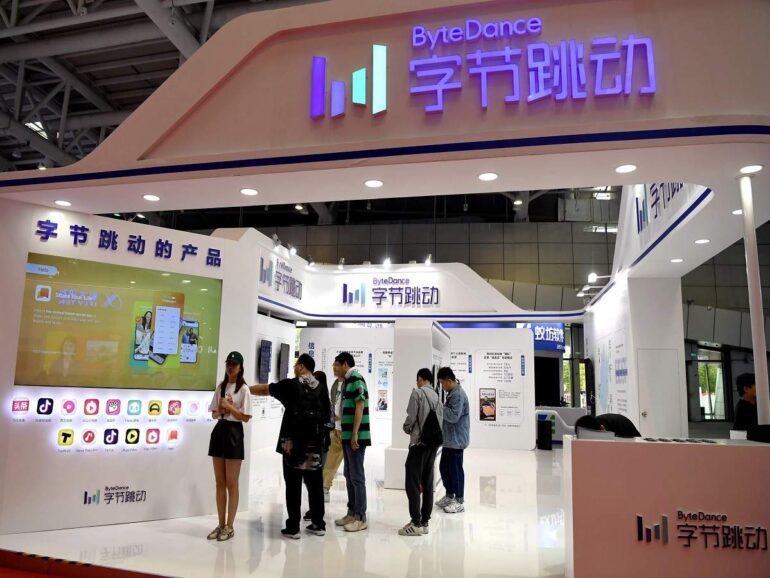TL;DR:
- ByteDance, the parent company of TikTok, is testing an AI chatbot called “Grace” to rival ChatGPT.
- The chatbot is currently in the early stages of development and undergoing internal testing.
- ByteDance’s previous chatbot, Tako, was aimed at enhancing content search on TikTok.
- ByteDance’s success in algorithmic recommendations for TikTok and Douyin is attributed to their AI-powered systems.
- Baidu and Alibaba have also launched their own ChatGPT-like services, marking China’s progress in generative AI.
- Chinese companies face regulatory challenges as AI applications, including chatbots, require security assessments before public use.
Main AI News:
ByteDance, the powerhouse behind the viral sensation TikTok, is making bold moves in the realm of artificial intelligence. Joining the likes of Baidu and Alibaba Group Holding, ByteDance is currently putting its experimental AI chatbot, codenamed “Grace,” through its paces. Designed to rival the popular ChatGPT, Grace is driven by powerful language models and is undergoing rigorous internal testing within ByteDance.
Although still in the early stages, ByteDance is keeping a tight lid on Grace, restricting access to a select group of employees for the time being. The project is shrouded in secrecy, and details about the chatbot’s capabilities remain under wraps.
ByteDance’s foray into generative AI comes as no surprise, considering the global success of OpenAI’s ChatGPT. ByteDance had previously unveiled Tako, a chatbot aimed at enhancing content search on TikTok, but Grace marks the company’s dedicated effort to tap into the potential of large language models.
The triumph of ByteDance’s flagship products, such as TikTok and Douyin, can be largely attributed to their algorithmic prowess. These platforms utilize cutting-edge AI algorithms to deliver tailored content recommendations to users, a feature that has captivated audiences worldwide. ByteDance’s secret sauce lies in its robust AI-powered recommendation system, which forms the foundation of its success.
ByteDance’s commitment to AI extends beyond content curation. The company leverages AI techniques to optimize videos, creating captivating filters and special effects that enrich the entertainment value of short-form content. ByteDance’s dedication to AI innovation is evident across its diverse product portfolio, including the popular news aggregator Jinri Toutiao.
While ByteDance strives to break new ground in generative AI, it is not alone in its ambitions. Baidu, a major player in the Chinese internet landscape, launched Ernie Bot, its own ChatGPT-like service, in March. Following suit, Alibaba introduced Tongyi Qianwen in April, further fueling the race for AI dominance. Notable contenders like SenseTime and iFlyTek have also entered the arena, emphasizing China’s significant movements in the field of generative AI.
However, Chinese companies face regulatory hurdles when it comes to deploying AI applications, including ChatGPT-like bots, as public services. The Cyberspace Administration of China (CAC) recently rolled out a draft law mandating stringent security assessments for AI products before they can be made available to the public. This regulation has raised concerns and created uncertainty for tech giants like Baidu Inc., as they navigate the rigorous evaluation process to ensure compliance.
ByteDance’s relentless pursuit of AI excellence signifies the company’s commitment to innovation and its determination to stay at the forefront of technological advancements. With Grace on the horizon, ByteDance is poised to make waves in the realm of AI-powered chatbots, further cementing its position as a leading player in the tech industry.
Conclusion:
ByteDance’s entry into the ChatGPT space with its experimental chatbot, “Grace,” signals the company’s determination to leverage the power of large language models. With TikTok’s success driven by algorithmic recommendations, ByteDance aims to further enhance user experiences by exploring generative AI technologies. The competition from other major Chinese tech companies, like Baidu and Alibaba, indicates a growing market for AI-powered chatbots.
However, stringent security assessments mandated by Chinese regulations may pose challenges for these companies in offering their generative AI products to the public. Overall, ByteDance’s innovative efforts demonstrate its commitment to staying at the forefront of AI advancements and solidifying its position in the tech industry.

